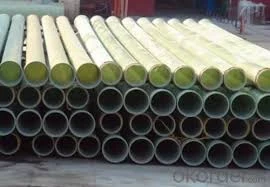
-
 Afrikaans
Afrikaans -
 Albanian
Albanian -
 Amharic
Amharic -
 Arabic
Arabic -
 Armenian
Armenian -
 Azerbaijani
Azerbaijani -
 Basque
Basque -
 Belarusian
Belarusian -
 Bengali
Bengali -
 Bosnian
Bosnian -
 Bulgarian
Bulgarian -
 Catalan
Catalan -
 Cebuano
Cebuano -
 China
China -
 China (Taiwan)
China (Taiwan) -
 Corsican
Corsican -
 Croatian
Croatian -
 Czech
Czech -
 Danish
Danish -
 Dutch
Dutch -
 English
English -
 Esperanto
Esperanto -
 Estonian
Estonian -
 Finnish
Finnish -
 French
French -
 Frisian
Frisian -
 Galician
Galician -
 Georgian
Georgian -
 German
German -
 Greek
Greek -
 Gujarati
Gujarati -
 Haitian Creole
Haitian Creole -
 hausa
hausa -
 hawaiian
hawaiian -
 Hebrew
Hebrew -
 Hindi
Hindi -
 Miao
Miao -
 Hungarian
Hungarian -
 Icelandic
Icelandic -
 igbo
igbo -
 Indonesian
Indonesian -
 irish
irish -
 Italian
Italian -
 Japanese
Japanese -
 Javanese
Javanese -
 Kannada
Kannada -
 kazakh
kazakh -
 Khmer
Khmer -
 Rwandese
Rwandese -
 Korean
Korean -
 Kurdish
Kurdish -
 Kyrgyz
Kyrgyz -
 Lao
Lao -
 Latin
Latin -
 Latvian
Latvian -
 Lithuanian
Lithuanian -
 Luxembourgish
Luxembourgish -
 Macedonian
Macedonian -
 Malgashi
Malgashi -
 Malay
Malay -
 Malayalam
Malayalam -
 Maltese
Maltese -
 Maori
Maori -
 Marathi
Marathi -
 Mongolian
Mongolian -
 Myanmar
Myanmar -
 Nepali
Nepali -
 Norwegian
Norwegian -
 Norwegian
Norwegian -
 Occitan
Occitan -
 Pashto
Pashto -
 Persian
Persian -
 Polish
Polish -
 Portuguese
Portuguese -
 Punjabi
Punjabi -
 Romanian
Romanian -
 Russian
Russian -
 Samoan
Samoan -
 Scottish Gaelic
Scottish Gaelic -
 Serbian
Serbian -
 Sesotho
Sesotho -
 Shona
Shona -
 Sindhi
Sindhi -
 Sinhala
Sinhala -
 Slovak
Slovak -
 Slovenian
Slovenian -
 Somali
Somali -
 Spanish
Spanish -
 Sundanese
Sundanese -
 Swahili
Swahili -
 Swedish
Swedish -
 Tagalog
Tagalog -
 Tajik
Tajik -
 Tamil
Tamil -
 Tatar
Tatar -
 Telugu
Telugu -
 Thai
Thai -
 Turkish
Turkish -
 Turkmen
Turkmen -
 Ukrainian
Ukrainian -
 Urdu
Urdu -
 Uighur
Uighur -
 Uzbek
Uzbek -
 Vietnamese
Vietnamese -
 Welsh
Welsh -
 Bantu
Bantu -
 Yiddish
Yiddish -
 Yoruba
Yoruba -
 Zulu
Zulu
FRP Insulated Storage Containers for Enhanced Energy Efficiency and Temperature Control
FRP Insulated Storage Vessel An Overview
In the modern industrial landscape, the need for efficient and reliable storage solutions has never been more crucial. One of the leading advancements in this area is the development of Fiberglass Reinforced Plastic (FRP) insulated storage vessels. These vessels are designed to store various materials safely and effectively while possessing unique properties that make them ideal for a range of applications.
What is FRP?
FRP, or Fiberglass Reinforced Plastic, is a composite material made of a polymer matrix reinforced with fiberglass. This combination offers distinct advantages over traditional materials like metals or unreinforced plastics. The primary benefits of using FRP include high strength-to-weight ratio, corrosion resistance, insulation properties, and versatility in design. These attributes make FRP an excellent choice for storage vessels subject to a wide range of environmental conditions.
Benefits of FRP Insulated Storage Vessels
1. Thermal Insulation One of the standout features of FRP insulated storage vessels is their ability to maintain temperature. The insulation properties prevent heat transfer, which is crucial for storing temperature-sensitive materials such as chemicals, food products, and pharmaceuticals. This control over temperature helps in preserving the integrity of the stored substances, ensuring they remain effective and safe.
2. Corrosion Resistance Traditional storage tanks made from metal are susceptible to corrosion, particularly when storing aggressive materials. FRP's inherent resistance to a variety of chemicals significantly extends the service life of the storage vessel, reducing maintenance costs and downtime. This resilience makes FRP insulated vessels ideal for applications in the chemical industry, water treatment facilities, and other corrosive environments.
3. Lightweight Design The lightweight nature of FRP allows for easier transportation and installation. This feature is particularly beneficial in industries where vessels must be relocated or where floor loading limits exist. The reduced weight does not compromise strength—FRP vessels can withstand significant internal and external pressures.
frp insulated storage vessel

4. Customization Options FRP storage vessels can be designed to meet specific needs, including varying shapes, sizes, and insulation configurations. This flexibility allows industries to tailor solutions that fit their exact storage requirements, leading to increased operational efficiency and safety.
5. Environmental Benefits Utilizing FRP vessels can have a lower environmental impact compared to traditional materials. The longevity and chemical resistance contribute to less waste and fewer replacements, while the energy savings associated with their insulating properties reduce overall energy consumption.
Applications of FRP Insulated Storage Vessels
FRP insulated storage vessels are utilized across diverse sectors, including
- Chemical Storage Due to their corrosion resistance, FRP vessels are ideal for storing acids, solvents, and other harsh chemicals. - Food and Beverage The insulation properties and non-reactivity of FRP make it suitable for storing temperature-sensitive food products without contamination. - Water Treatment These vessels are widely used in water and wastewater treatment facilities, contributing to both storage and processing. - Energy Sector With increasingly stringent regulations regarding environmental protection, FRP vessels are being adopted for fuel and gas storage.
Conclusion
FRP insulated storage vessels stand out in the modern industrial arena due to their numerous advantages. With benefits such as excellent thermal insulation, corrosion resistance, and lightweight portability, they provide an efficient and durable solution for various storage needs. As industries continue to prioritize sustainability, reliability, and safety, the role of FRP vessels is expected to expand, paving the way for innovative applications and improved operational practices.









